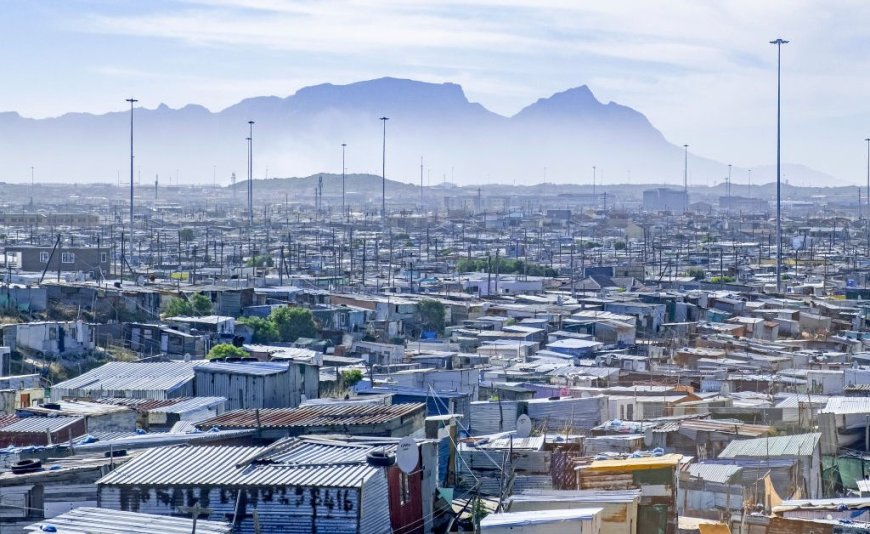Why Housing Is a Frontline Defense Against Climate Change
Research conducted on behalf of Habitat for Humanity shows that adequate housing is a powerful catalyst for well-being and sustainability.


Climate change is reshaping the world, exacerbating global challenges in health, employment, education, and personal safety. Yet world leaders often overlook the very place where the climate crisis quite literally hits home for people: their housing.
Increasingly severe natural disasters, rising sea levels, and extreme weather events are not only threatening existing homes but also driving up the costs of building and maintaining safe, decent housing. Habitat for Humanity, through our work in more than 70 countries, sees firsthand how low-income families—despite contributing the least to global carbon emissions—often bear the brunt of climate change. This is particularly true for the more than a billion people living in slums and other informal settlements. [time-brightcove not-tgx=”true”]
But here’s the good news: these same communities hold the solution, if we would only stop to truly listen, hear how climate change is impacting their daily lives and invest in large-scale efforts to make more homes safe, healthy and resilient.
The stakes couldn’t be higher. Climate migration could displace over 215 million people around the world by 2050, with the greatest impact on the low-income and rapidly urbanizing countries. Contrary to fears that most climate impacted communities will migrate to high-income nations, the majority remain within their own borders, many living in poorly built homes in informal settlements. These areas, already vulnerable to climate impacts, will face even greater strain as the displaced settle there, putting immense pressure on limited resources.
Whether we recognize it or not, the places we call home are at the heart of the climate crisis—both contributing to the problem while holding immense potential to mitigate the impacts of climate change. According to the United Nations Environment Programme, the built environment accounts for 21% of global greenhouse gas emissions, with residential buildings responsible for 17% of the total emissions. As the planet warms and climate disasters intensify, housing’s role becomes even more critical—not only in reducing emissions but also providing stability and safety to those most affected.
World leaders have the opportunity—and I’d argue the obligation—to focus on climate migration, especially within the Global South. To turn a blind eye to this factor is to miss a massive piece of the puzzle to address the climate challenge, as well as critical issues such as economic development, health, and education.
Housing for climate resilience and development
Numerous studies have proven that having a safe and secure place to call home leads to improved quality of life across any number of measurable outcomes. Even the simplest forms of shelter can drastically affect the trajectory of the lives of those who live there. Yet, for millions of families living in informal settlements, homes often lack basic services, land tenure security and climate resilience. These challenges are daunting but also present a unique opportunity to combat climate change. By investing in adequate shelter for residents of informal settlements we will not only address a moral imperative but also unlock one of the smartest and most impactful strategies for building a sustainable and equitable future.
Recent research conducted on behalf of Habitat for Humanity shows that adequate housing is a powerful catalyst for well-being and sustainability. It impacts a country’s economic development, income, health, and education for both residents of informal settlements and the wider society. GDP and income per capita would increase by as much as 10.5% in some countries if housing in informal settlements were upgraded at a massive scale, and as many as 41.6 million additional children could be enrolled in school.
And while the link between housing and climate change is clear, world leaders continue to overlook access to adequate shelter as an adaptation and mitigation tool.
A critical gap in climate action plans
Nationally Determined Contributions, or NDCs, are the cornerstone of global climate action, spelling out each country’s commitment to reduce carbon emissions and adapt to the impact of climate change under the Paris Agreement. Yet, only 21% of all countries demonstrate a high-level commitment to the housing sector in their NDCs while just over 60% fail to prioritize housing at all.
This omission is a glaring oversight. Housing-centric approaches that adapt communities and households to climate impacts, including comprehensive slum upgrading, are essential for climate actions and advancing sustainable development goals. These strategies not only address climate resilience but also provide pathways for improved health, education, and economic outcomes.
In response to these challenges, Habitat for Humanity has adapted how we work. Around the world, Habitat builds and renovates homes, increasing the use of sustainable natural resources and construction practices while reducing the emission of greenhouse gases throughout a home’s life cycle.
To scale these efforts, we urge leaders of the G7 countries to recognize and support housing mitigation and adaptation, particularly in informal settlements, in their climate actions. By investing in housing solutions, countries can progress towards achieving their climate objectives while fostering more resilient, sustainable and equitable communities.
Home is more than a place to live. Home equals better health, safety and security, and serves as the foundation for a better future—for families and the planet.


























































